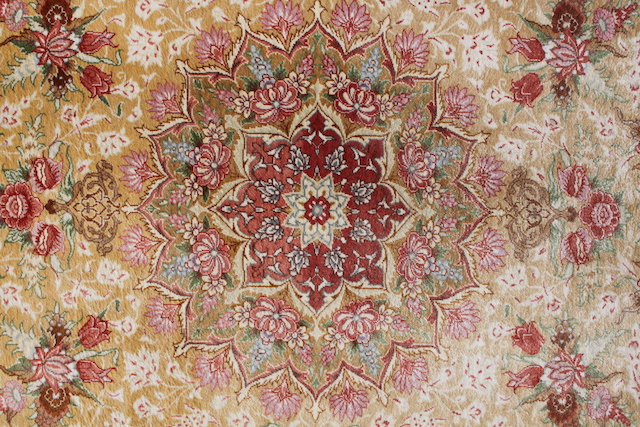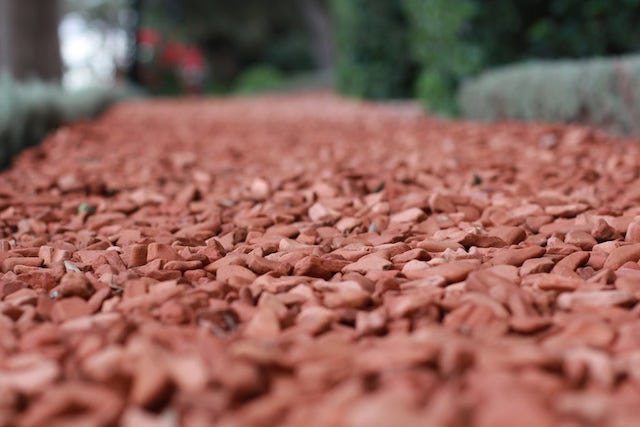
The Tablet of the World and Bahá’u’lláh’s Homeland
 The Tablet of the World was written in 1891 in Haifa. It was written at a time when two of Bahá’u’lláh’s followers lay imprisoned because of their faith. These two, Ali-Akbar, and Haji Abu’l Hassan-i-Amin, had been designated Hands of the Cause and the Tablet of the World starts by honouring them. The words used to do so are resonant:
The Tablet of the World was written in 1891 in Haifa. It was written at a time when two of Bahá’u’lláh’s followers lay imprisoned because of their faith. These two, Ali-Akbar, and Haji Abu’l Hassan-i-Amin, had been designated Hands of the Cause and the Tablet of the World starts by honouring them. The words used to do so are resonant:
Light and glory, greeting and praise be upon the Hands of His Cause, through whom the light of fortitude hath shone forth and the truth hath been established that the authority to choose rests with God, the Powerful, the Mighty, the Unconstrained, …[1]
After drawing our minds to the sacrificial lives of such individuals, Bahá’u’lláh shifts attention to a national stage — taking a trajectory that will lead us, as the Tablet of the World unfolds, from the individual heart to humanity as a whole.
Bahá’u’lláh’s homeland was Persia and he reflects on the condition in which Persia found herself in the nineteenth century.
O people of Persia! In former times ye have been the symbols of mercy and the embodiments of affection and kindliness. The regions of the world were illumined and embellished by the brightness of the light of your knowledge and by the blaze of your erudition. How is it that you have arisen to destroy yourselves and your friends with your own hands?[2]
Persia is an ancient civilization that has contributed greatly to human progress. Bahá’u’lláh’s words may refer to many historical instances but among them is likely to be the role of Persia in freeing the Hebrews who were in exile in Babylon. It was through the actions of the Persian monarch, Cyrus the Great, that the Hebrews were able to return to their homeland and rebuild their temple and society. From those events, highly significant dimensions of human history have unfolded – for it set the stage for the birth of Christianity and after it Islam – which together account for around half the world’s population. Bahá’u’lláh’s teachings, as we have seen, draws on this religious heritage, as Manifestations of God before him have done. The passage quoted above also appears to allude to Persia’s persecution of Bahá’u’lláh and his followers in his own time. It is a juxtaposition of lost potential.
Bahá’u’lláh refers further to Persia when he recalls passages he has written in his book of laws (the Kitab-i-Aqdas).
Referring to the land of Tá [Ṭihrán] We have revealed in the Kitáb-i-Aqdas that which will admonish mankind. They that perpetrate tyranny in the world have usurped the rights of the peoples and kindreds of the earth and are sedulously pursuing their selfish inclinations.[3]
These sentences suggest that Bahá’u’lláh is simultaneously speaking to all humanity when addressing Persia. The themes explored appear to emphasise the injustice of tyranny and oppression, while offering words of comfort to his native land.
Let nothing grieve thee, O Land of Ṭá, for God hath chosen thee to be the source of the joy of all mankind. He shall, if it be His Will, bless thy throne with one who will rule with justice, who will gather together the flock of God which the wolves have scattered. … Rejoice with great joy, for God hath made thee “the Dayspring of His light,” inasmuch as within thee was born the Manifestation of His Glory. … Erelong will the state of affairs within thee be changed, and the reins of power fall into the hands of the people. …The day is approaching when thy agitation will have been transmuted into peace and quiet calm.[4]
A further reference to Persia in the Tablet of the World, merits reference.
How strange that the people of Persia, who were unrivalled in sciences and arts, should have sunk to the lowest level of degradation among the kindreds of the earth.[5]
There is no question that for a time Persia was a source of sciences and arts. Undoubtedly Persian science influenced the Greeks. In Islamic times, many Persian scientists and philosophers advanced human knowledge. Among them are the philophophers Al Ghazali and Avicenna, the astronomer Al Tusi, the poet, mathematician and astronomer Omar Khayyam, the mathematician Al-Khwarismi who introduced decimal numbers and algorithms to the western world and the mystical poet Rumi among many others. It is in this context that Bahá’u’lláh reflects on the fallen state of Persia in his times. It was an era of tyrannical and corrupt governance and foreign exploitation.
These themes were also explored in a book-length treatise written by Abdu’l Baha in 1875 to the people of Persia, and is published under the title The Secret of Divine Civilization. It takes the reader through a discussion of the factors leading to the decline or progress of peoples and nations.
That Bahá’u’lláh’s words are not intended as the exaltation of one nation over another is made clear in the Tablet of the World as it introduces its universal themes.
How vast is the tabernacle of the Cause of God! It hath overshadowed all the peoples and kindreds of the earth, and will, ere long, gather together the whole of mankind beneath its shelter.[5]
The summons and the message which We gave were never intended to reach or to benefit one land or one people only. Mankind in its entirety must firmly adhere to whatsoever hath been revealed and vouchsafed unto it. Then and only then will it attain unto true liberty.[6]
(This article is the 185th in a series of what I hope will be 200 articles in 200 days for the 200th anniversary of the birth of Bahá’u’lláh. The anniversary is being celebrated around the world on 21 and 22 October 2017, The articles are simply my personal reflections on Bahá’u’lláh’s life and work. Any errors or inadequacies in these articles are solely my responsibility.)
Image Credits: Silk. Persian carpet in the visitors centre before entering the Bahji shrine. With thanks to Kath Podger.







